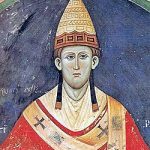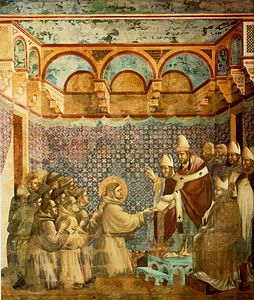Innocent III was the head of the Catholic
Innocent III is considered one of the most influential popes in history, known for his strong leadership and significant contributions to the development of the Catholic Church. During his papacy, he worked tirelessly to expand the power and influence of the papacy, and his efforts led to significant reforms within the Church.
One of the most notable achievements of Innocent III was his role in the Fourth Crusade. He was a strong advocate for the Crusades and believed that they were necessary to reclaim the Holy Land from Muslim control. In 1202, he called for a new Crusade, and the Fourth Crusade was launched in 1204. Although the Crusaders did not achieve their initial goal of reaching Jerusalem, they did capture Constantinople and established a Latin Empire in the region.
In addition to his work with the Crusades, Innocent III also made significant contributions to the governance of the Church. He was instrumental in the development of canon law and worked to establish the papacy as the ultimate authority in matters of Church doctrine and discipline. He also worked to eliminate corruption within the Church and to promote greater education and accountability among the clergy.
Despite his many accomplishments, Innocent III was not without his critics. Some accused him of being too authoritarian and of trying to consolidate too much power in the hands of the papacy. Others criticized his policies toward Jews and Muslims, which they viewed as overly aggressive and intolerant.
Overall, however, Innocent III is remembered as one of the most influential popes in history. His strong leadership and dedication to the Church helped to establish the papacy as a major political and religious force in Europe, and his reforms had a lasting impact on the development of the Catholic Church. Even today, his legacy continues to be felt throughout the Church and beyond.



















Add Comment